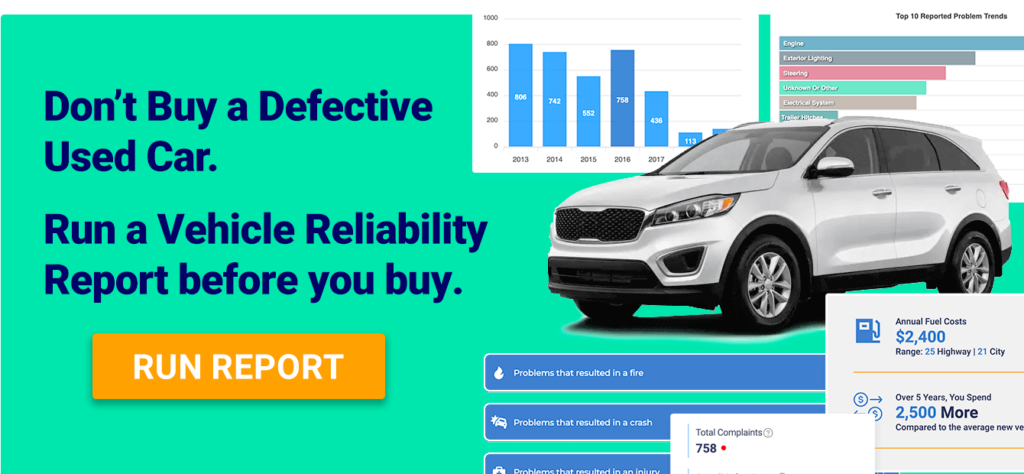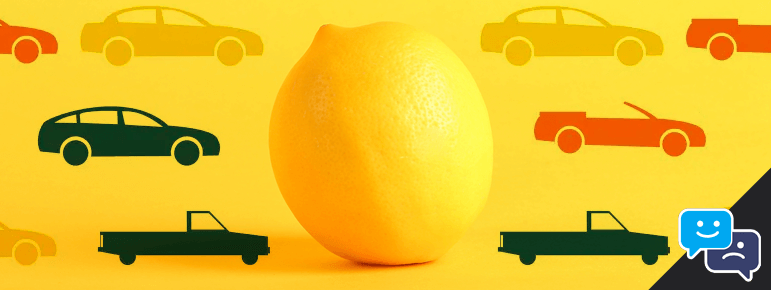Buying a used car can feel like risky business. Many prospective buyers wonder, does the lemon law for used cars apply? The fact is, these laws differ widely from state to state.
Many U.S. states have lemon laws for used cars, varying by state. These laws cover significant defects unfixable after multiple attempts or extended repair periods. Coverage depends on vehicle age, mileage, and warranty. Remedies might include refunds or replacements.
Typically, these laws apply to dealership purchases only, not private sales. Understanding state-specific regulations is crucial.
But don’t worry; this guide will help you in understanding how lemon laws may protect your rights as a secondhand car buyer. So are you ready to navigate the ins and outs of lemon law for used cars? Let’s hit the gas!
Understanding Lemon Laws For Used Cars
A “lemon” is a term used to describe a defective vehicle that has recurring problems or issues, significantly impairing its use, value, or safety.
Definition Of A Lemon
A lemon is a car with a defect. Simple put, if the vehicle can’t be fixed after three tries, it’s a lemon. Additionally, if the vehicle has been in the shop for a total of 30 days or more, it’s a lemon.
The “lemon” term comes from the law and talks about cars that do not work right because of some serious flaw.
However, each state uses its own rules to decide if a car is a lemon or not. The lemon law often covers cars for people only. It usually does not cover large vehicles that carry more than one-ton loads.
What Is The Criteria For A Used Car To Be Considered A Lemon?
A used car must have significant defects to be deemed a “lemon” and must still be covered by the manufacturer’s warranty. Generally, the defect makes the car unsafe or hard to use.
Most common reason for a car to be deemed a lemon is engine problems. Think of frequent overheating or sudden loss of power. Then there’s the transmission. If gears slip, or if it lurches forward, then the vehicle may qualify as a lemon.
Don’t forget the electrical system. Battery issues or light malfunctions are red flags. Steering should be smooth. But if it’s tough to control or noisy, take note.
Fuel systems can act up, too. Strong fuel order inside the cabin of the vehicle can be a health concern. Safety features are vital. Airbags shouldn’t deploy randomly. Additionally, all seat belts including child latches must latch and secure correctly.
Suspension issues show in uneven tire wear. Or the car might bounce too much. A car’s exterior speaks volumes. Early rust or peeling paint isn’t normal. Air conditioning should work consistently. If not, it’s another warning.
Lastly, onboard computers and dashboard screens should run without any glitches, rebooting or random errors.
Remember, one issue doesn’t label a car a “lemon.” It’s repeated, unresolved problems that do. If a dealer can’t fix a problem after three tries, then it might be a lemon.
It’s important to note for a used cars to qualify as a lemon, it must still be under manufacturers warranty for lemon laws to apply in some places. If not, there may not be any protection against defective vehicles.
Simply put, the warranty coverage helps ensure used car protections even when things go wrong unexpectedly. But always check local laws if you think you have a lemon.

Applicability Of Lemon Laws To Used Cars
Fact is, lemon laws can cover used cars, but this coverage is not the same in every state. Only certain states have specific lemon laws for used vehicles.
These states offer specific rights to used car buyers, mandating warranties or establishing standards for the sale of pre-owned vehicles. These states are Arizona, California, Connecticut, Illinois, Maine, Nevada, New Mexico, and Pennsylvania.
Additionally, states like North Carolina have statutes against Unfair and Deceptive Practices that can be applied. However, only states with genuine used car lemon laws obligate the dealer to either replace the car or offer a refund.
Below is a list of states that have lemon laws for used cars.
| States with Specific Rights for Used Car Buyers | States with Unfair and Deceptive Practices Statute |
|---|---|
| Arizona | |
| California | |
| Connecticut | |
| Illinois | |
| North Carolina | |
| Nevada | |
| New Mexico | |
| Maryland | |
| Pennsylvania |
What If I Don’t Live In A State With A Lemon Law For Used Cars?
Live in a state that doesn’t have a specific lemon law on the books? Well good news, the Magnuson Moss Warranty Act can help. This act says that if your used vehicle has a written warranty, you get some protection from the lemon law.
Simply put, even if you bought a “as is” used car which turned out to be a lemon, this does not stop your rights under these consumer protection rules.
What Steps Do I Need to Take If My Used Car Qualifies As A Lemon?
First, notify the manufacturer or dealer immediately with a detailed explanation of the defects and attempts made to repair them.
Notify The Manufacturer Or Dealer
If you think your used car qualifies as a lemon, it’s important to notify the manufacturer or dealer. This is the first step in seeking legal remedies for the issues with your vehicle.
By informing them about the problems you’re experiencing, you can start the process of resolving the situation. The lemon law requires manufacturers and dealers to be given a reasonable opportunity to fix a substantial problem before considering a car as a lemon.
So, by notifying them early, you are giving them a chance to address the issue and potentially resolve it.
Just make sure to provide all relevant details about the defects or malfunctions in your vehicle. Be clear and specific about what’s wrong with your car and how it affects its performance or safety.
You should also keep records of any repairs or attempts made by either party to fix the problem.
Remember that some states may require dealers to provide written warranties for used cars under lemon laws. Therefore, when notifying them, you can also inquire about any warranty coverage that might apply to your situation.
What Are The Auto Manufacturer’s Responsibilities?
When a used car qualifies as a lemon, the original manufacturer has certain responsibilities. In California, the manufacturer must repurchase or repair the vehicle if it has a significant defect that cannot be repaired within three repair attempts.
This means that they have to take action to address the issue with the car and make it right for the consumer.
Keep in mind, it is important to note that each state may have different requirements regarding manufacturers’ responsibilities when it comes to resolving issues with used cars that qualify as lemons.
My Used Car Qualifies As a Lemon, What Are My Options?
If your used car qualifies as a lemon, there are several options for resolution available to you. Depending on your state laws, you may be able to receive a replacement vehicle or obtain a refund for the full purchase price minus an allowance for use.
What Are The Limitations of Lemon Laws for Used Cars?
There are exclusions under lemon laws, time limitations for filing a claim, and the potential need for legal assistance.
Exclusions Under Lemon Laws
Lemon laws for used cars have some exclusions that consumers need to be aware of. These exclusions determine whether a vehicle qualifies as a lemon and is eligible for protections under the law.
One common exclusion is that lemon laws typically only address the responsibility of the manufacturer, not the dealership or private party. This means that if you purchased a used car from a dealership or an individual, they may not be held accountable under lemon laws if the car turns out to be a lemon.
Another important exclusion is that lemon laws often have specific criteria for what constitutes a defect or issue that qualifies as a lemon. The scope of these laws can be narrower than what consumers realize. Fact is, not all problems with a used car will qualify it as a lemon. For example, oil consumption problems would not qualify for lemon law.
It’s important to note that even if your used car doesn’t meet the criteria for being considered a lemon under state-specific lemon laws, it may still be subject to other consumer protection regulations.
Is There A Time Limitation For Filing A Used Car Lemon Law Claim?
Yes, making a claim under the used car lemon law has time limits for filing. These time limits vary greatly across states. However, the Magnuson-Moss Warranty Act, which is applicable nationwide, gives you the right to file a claim within four years from the breach of your warranty.
For vehicles, this typically means you have a four-year window from the first unsuccessful repair attempt to make a claim.
The key takeaway here is that understanding and adhering to these time limitations is vital when filing a claim under lemon laws for used cars because missing these deadlines could impact your ability to seek compensation or resolution for your vehicle issues.
I Need Lemon Law Assistance, Can MyCarVoice Help?
Yes, if you find yourself dealing with a used car that qualifies as a lemon, you will need legal assistance to navigate the process. Truth is, lemon laws can be complex and vary by state. So having an attorney who specializes in automotive defects can be extremely beneficial. We can help.
If you suspect your used vehicle is a lemon, and you are still under the original manufacturers warranty, please send us a message.
Final Thoughts
Simply put, lemon laws can apply to used cars in some states. But it’s important to know the specific guidelines and requirements of your state’s lemon law before pursuing a used car lemon law claim.
Always do your research and understand your rights as a consumer to protect yourself when buying a preowned vehicle.
Hopefully, this article was helpful. Did we miss anything? If so, please leave a comment below 👇

Managing Editor
Christopher is an automotive technical writer. When he’s not at the local autocross event, he can often be found working on one of his cars. Specializes in automotive class action law, industry trends, and automotive maintenance. Email me direct, or learn more about us

